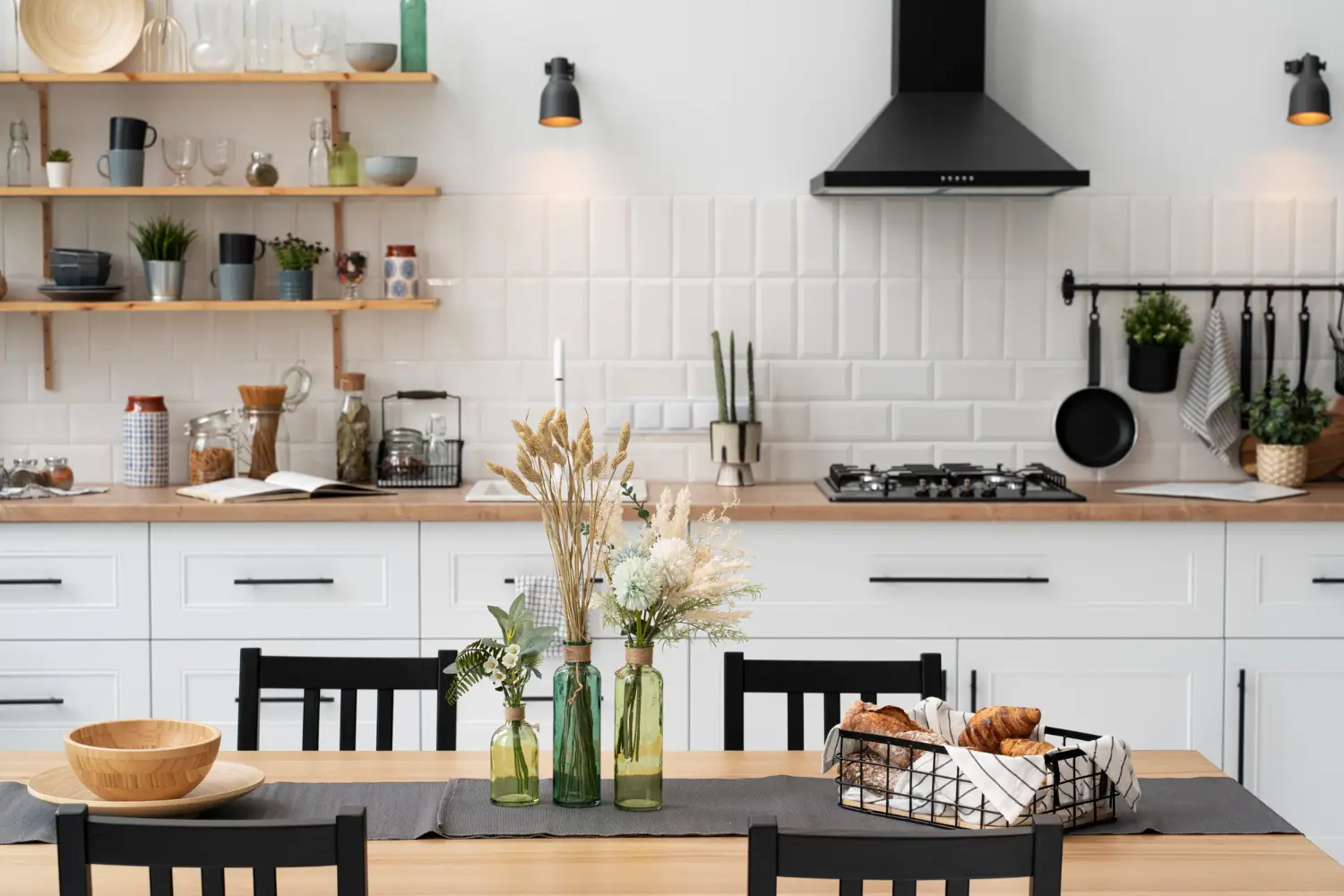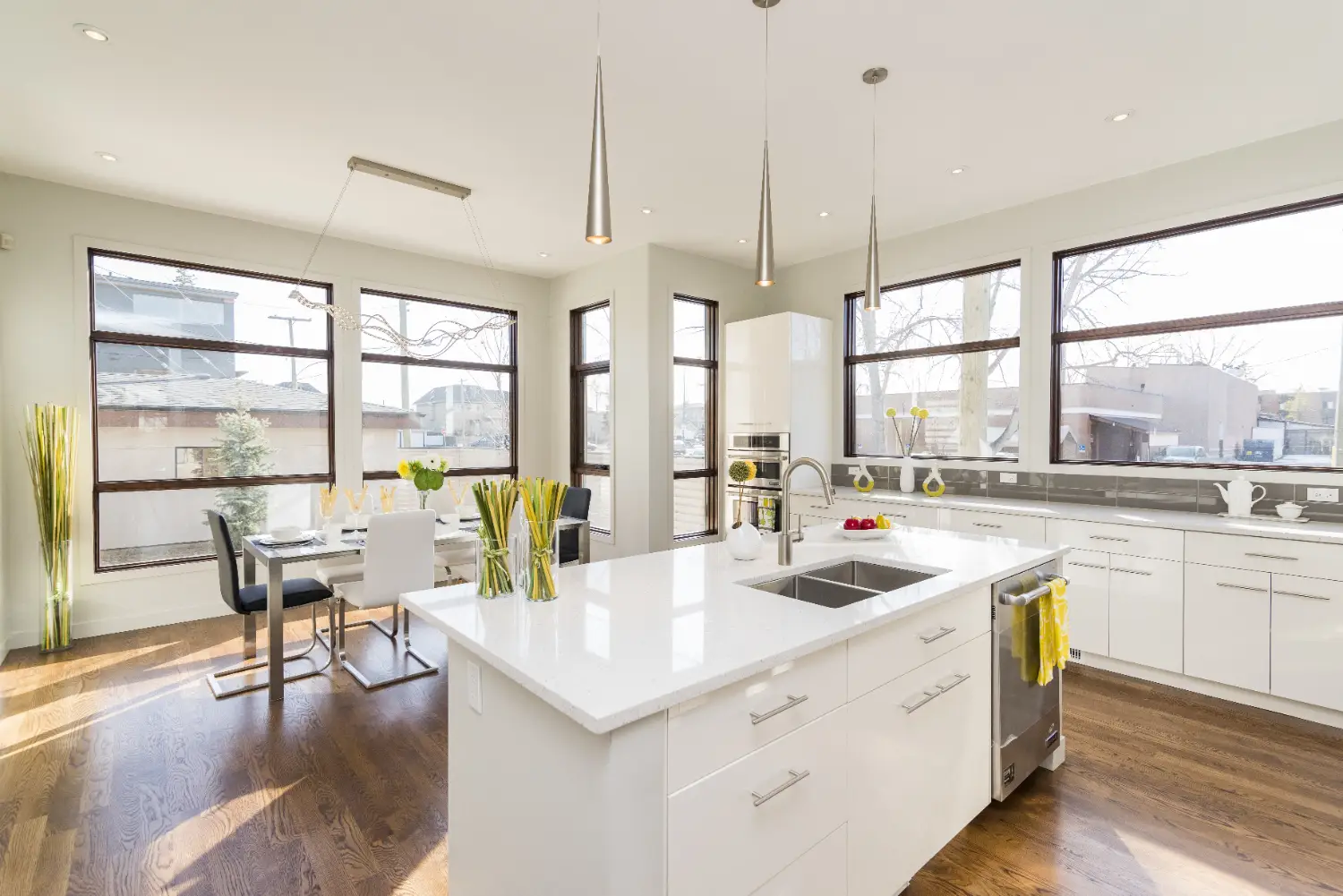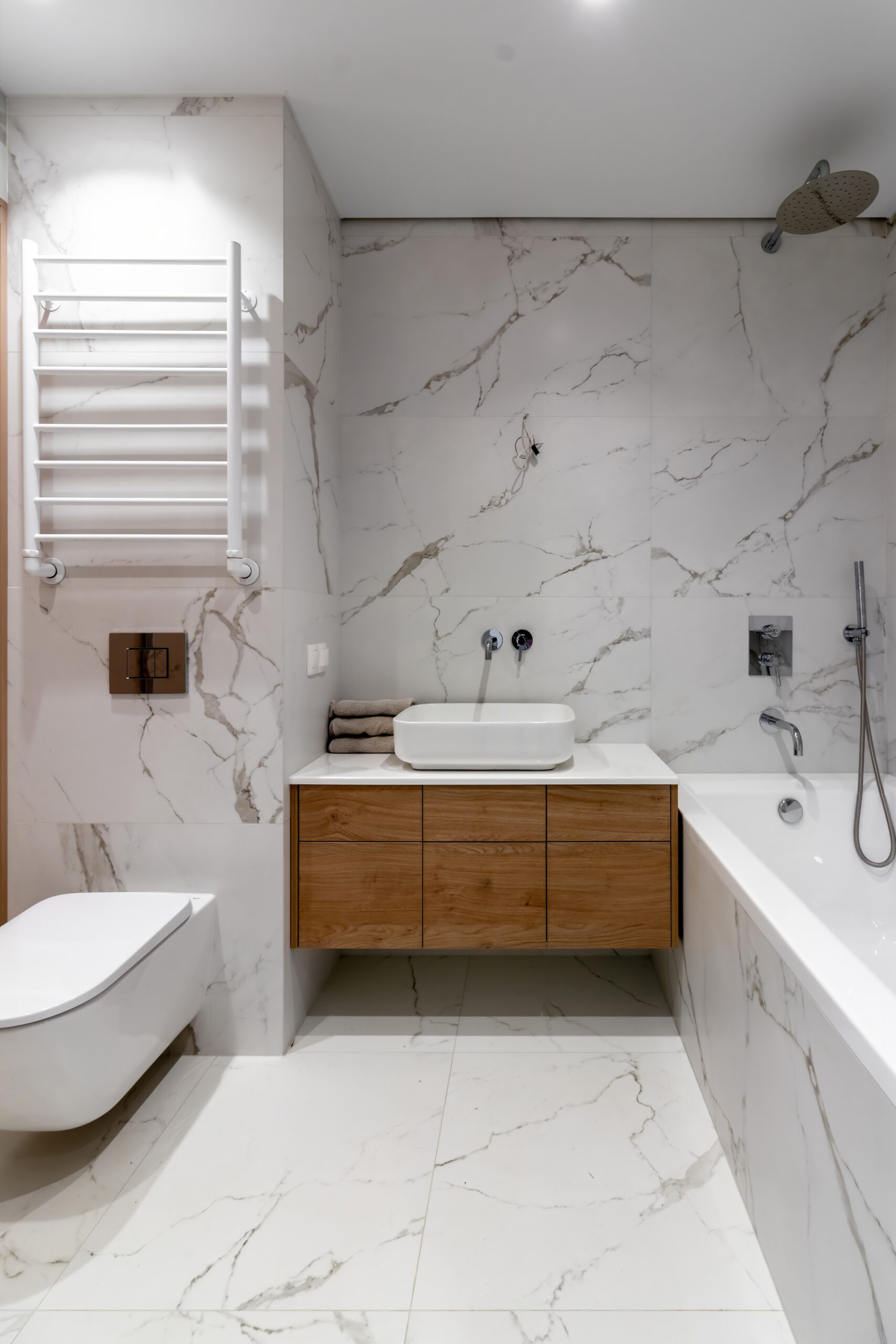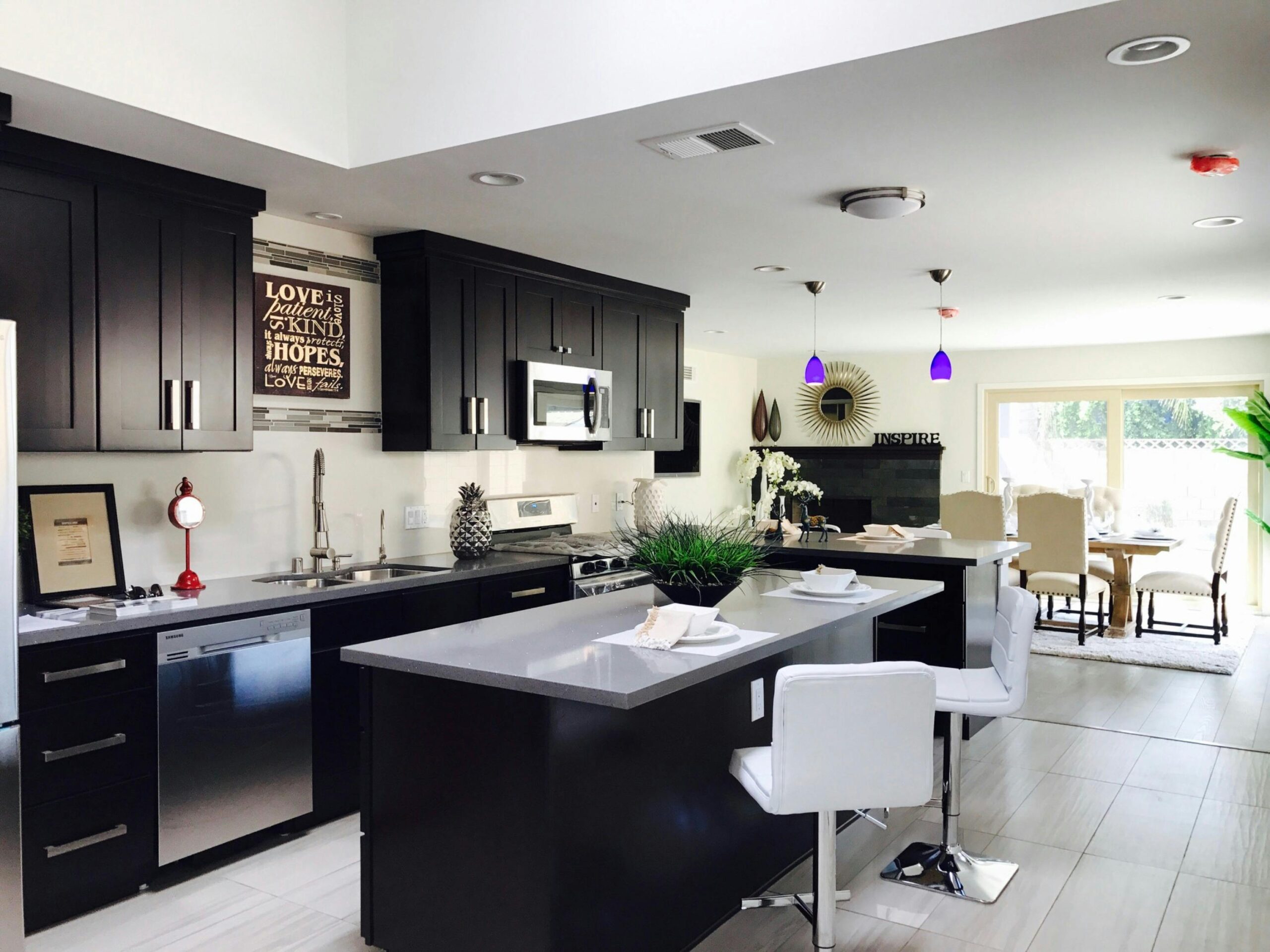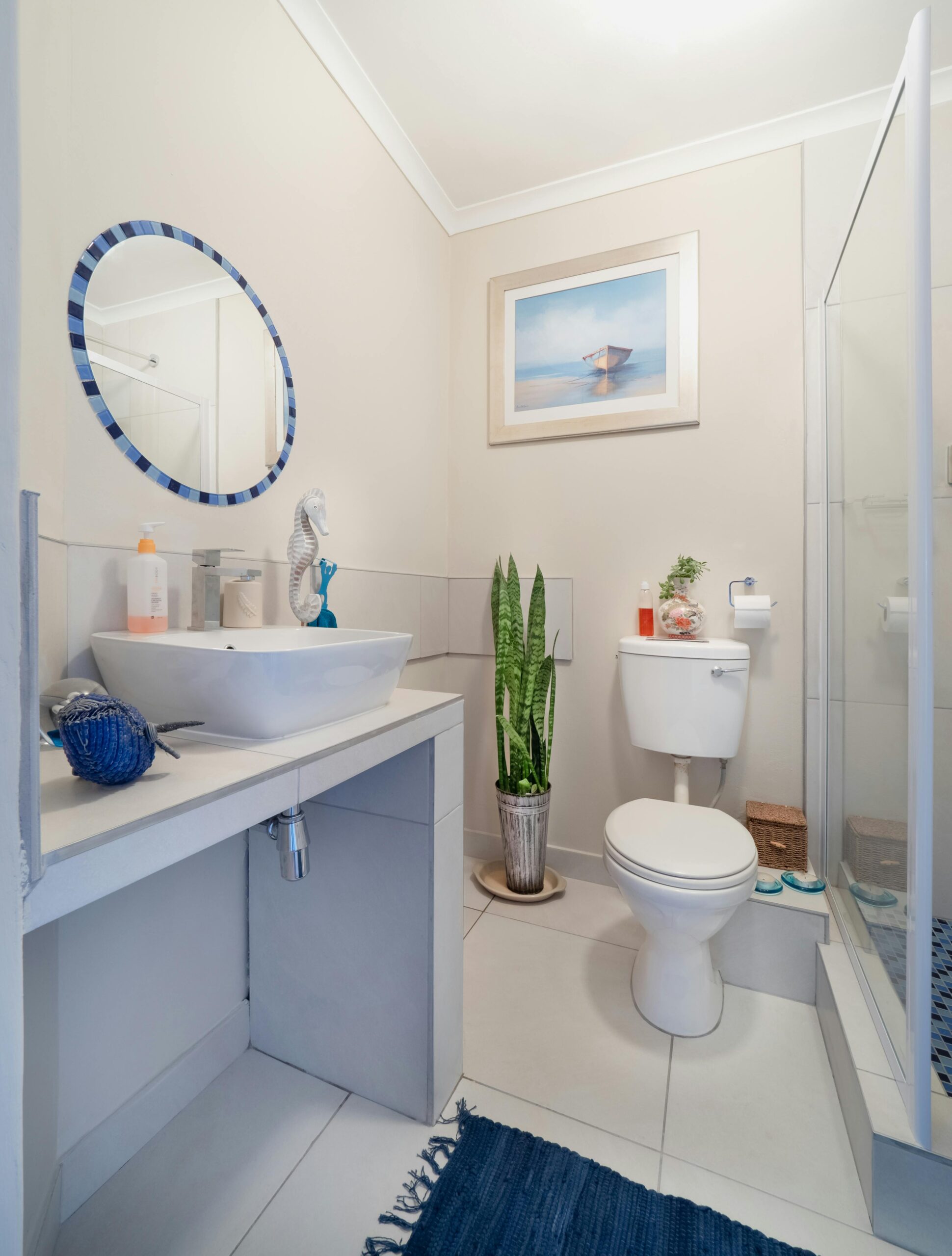When it comes to eco-friendly construction and home improvement, the materials you choose can make a big difference. For those in the San Fernando Valley, including Woodland Hills, North Hollywood, and Tarzana, the choice between plywood and particle board cabinets is a common one. Here at Impactful Construction Group, we understand the importance of making sustainable choices. As a CA licensed contractor based in Woodland Hills, we’re committed to helping our clients make informed decisions about their home improvement projects.
Both plywood and particle board have their advantages and can be used in a variety of applications. But when it comes to sustainability and environmental impact, which is the better choice? In this post, we’ll delve into the differences between these two materials, examine their environmental impacts, and help you decide which is the right choice for your next project.
Our experienced team at Impactful Construction Group has worked with these materials extensively in homes across Los Angeles, from Encino to Van Nuys, and we’re here to share our expertise. Let’s dive in.
Table of Contents
ToggleUnderstanding Plywood and Particle Board
Before we can discuss which material is more eco-friendly, it’s important to understand what plywood and particle board are. Plywood is a type of engineered wood made by gluing together thin layers of wood veneer. The layers are arranged with their grain patterns alternating, which gives plywood its characteristic strength and stability.
Particle board, on the other hand, is made from wood chips, sawmill shavings, and even sawdust, which are compressed and bonded together with a resin. This results in a material that is less expensive than plywood, but also less durable and less resistant to moisture.
While both materials are commonly used in the construction of cabinets, they have different characteristics that can affect their environmental impact. Let’s examine these factors more closely.
Eco-Friendly Production Processes
The production process for both plywood and particle board can have significant environmental impacts. Here’s what our team at Impactful Construction Group has learned about these processes:
- Plywood production involves cutting logs into thin layers, which can result in more waste than the particle board production process. However, many plywood manufacturers have implemented measures to reduce waste and increase efficiency.
- Particle board production makes use of wood waste products, which can make it a more sustainable choice. However, the resins used to bind the wood particles together can sometimes contain formaldehyde, a harmful chemical.
When considering the eco-friendliness of these materials, it’s important to consider not only the production process but also the lifespan and durability of the final product. Let’s take a closer look at these factors.
Lifespan and Durability
When it comes to lifespan and durability, plywood tends to outperform particle board. Because of its layered construction, plywood is more resistant to moisture and can withstand more wear and tear. This means that plywood cabinets can last longer than particle board cabinets, reducing the need for replacement and thereby minimizing environmental impact.
Particle board, while less durable, is more affordable, making it a popular choice for budget-conscious homeowners in areas like Burbank and Studio City. However, the shorter lifespan of particle board cabinets could lead to more frequent replacement, which has its own environmental implications.
Recyclability and Disposal
At the end of their life, both plywood and particle board can be recycled, but there are some differences to consider. Plywood can often be reused in other construction projects, while particle board is typically ground up and used as a filler material. However, because of the resins used in particle board, it can be more difficult to recycle.
When it comes to disposal, particle board can create more landfill waste due to its shorter lifespan and difficulties in recycling. Plywood, on the other hand, can often be reused or recycled more easily, reducing its impact on landfills.
Which is More Eco-Friendly?
So, is plywood or particle board more eco-friendly? The answer isn’t straightforward. While plywood is more durable and easier to recycle, its production process can create more waste. Particle board makes use of wood waste products, but its shorter lifespan and potential for formaldehyde emissions can negatively impact the environment.
Ultimately, the choice between plywood and particle board will depend on your specific needs and circumstances. If durability and recyclability are your top priorities, plywood may be the better choice. If you’re on a tight budget and want to make use of wood waste products, particle board could be the way to go.
FAQs
1. Can I use both plywood and particle board in my project?
Yes, it’s possible to use both materials in a single project. For example, you might choose to use durable plywood for the cabinet boxes and more affordable particle board for the cabinet doors.
2. Are there eco-friendly alternatives to plywood and particle board?
Yes, there are several eco-friendly alternatives to these materials. These include bamboo, reclaimed wood, and FSC-certified wood, which is sourced from responsibly managed forests.
3. How can I ensure that my home improvement project is as eco-friendly as possible?
Consider hiring a contractor with a commitment to sustainability, like Impactful Construction Group. Look for materials that are locally sourced, recycled, or made from reclaimed wood. Try to minimize waste during the construction process, and recycle any leftover materials.
In conclusion, both plywood and particle board have their pros and cons when it comes to eco-friendliness. Consider your specific needs, budget, and environmental concerns when choosing the material for your next project. Whether you’re in Sherman Oaks, Calabasas, or anywhere in the Los Angeles area, our experienced team at Impactful Construction Group is here to help. Call or text us at (323) 591-3717 to discuss your project and let’s bring your vision to life.
Ready to transform your space? Trust the experts at Impactful Construction Group. As CA licensed contractors based in Woodland Hills, we serve the entire Los Angeles area with premium construction and remodeling services. Call or text (323) 591-3717 for a free consultation and let’s bring your vision to life.
About Los Angeles: Known for its Mediterranean climate, ethnic diversity, and bustling entertainment industry, Los Angeles is a vibrant city with a rich history. From the scenic beaches of Malibu to the historic Hollywood Hills, there is something for everyone in Los Angeles. Impactful Construction Group proudly serves the following neighborhoods in the San Fernando Valley: Woodland Hills, North Hollywood, Tarzana, Encino, Van Nuys, Burbank, Studio City, Sherman Oaks, Calabasas, and Malibu.
When it comes to hiring a Kitchen Remodeling Contractor in Los Angeles, it’s important to consider the company’s experience, reputation, and commitment to customer service. At Impactful Construction Group, we pride ourselves on our high-quality workmanship, attention to detail, and dedication to client satisfaction.
Keywords: Plywood, Particle Board, Eco-Friendly, Cabinets, Construction, Home Improvement, Impactful Construction Group, Woodland Hills, Los Angeles, San Fernando Valley


